くらしに価値タス カチタス


All over Japan, more houses become unoccupied every year. As of 2023, 9.00 million houses are not occupied, which means that 13.8% of all houses in Japan are empty. This is a serious social issue. One of the reasons is the concentration of distribution on relatively new apartment buildings located within Central Tokyo. In contrast, KATITAS mainly deals in old detached houses in rural areas. Finding value in detached houses, including empty ones, KATITAS aims to achieve a sustainable society where the bustle of people never ceases.
KATITAS outsources the remodeling of purchased houses to its local partner builders. The construction of public infrastructure, new houses, large buildings and apartment buildings is limited in rural areas in marked contrast with urban areas. This means fewer jobs for local builders. So KATITAS creates jobs remodeling used houses. Even when students wish to work for their communities, they may have no other choice but to live away from home due to reasons relating to work conditions. KATITAS recruits in a community-based manner and willingly employs students motivated to work for their hometowns. In this way we create jobs and give young people great places to work.
Our business model emits about one quarter the CO2 of the development and construction of new houses. (Per square meter, a newly built house emits 283 kilograms of CO2 while a used house emits 76 kilograms.) The amount of timber used in our business model is about one seventh. (A new house uses 21 cubic meters of timber whereas a used house uses 3 cubic meters.) As forested area decreases globally and the CO2 emissions accelerate global warming, we operate in an environmentally friendly way.
As of April 1, 2025, women account for 40.0% of all of our staff. The ratio of female managers is 18.8%. We have 129 new staff members who are new graduates, and 56 of them, or 43.3%, are women. Eight people, or 40.0% of our top 20 staff members in the business year ending March 2025(FY2024) are female. Many female colleagues are playing leading roles in the company.
We have established the following as our Basic Procurement Policy with the aim to "add value" to society. This policy is based on our recognition of the need to take environmental impact and social issues into consideration when procuring renovation materials and housing equipment. Our suppliers will also be informed of this policy to promote procurement activities that adhere to this policy.
1. Compliance with laws, regulations, and social norms
- We shall comply with all relevant laws, regulations, and social norms.
2. Reduction of environmental impact
- We shall promote resource conservation, active use of externally certified materials (e.g., FSC certified lumber) in consideration of environmental and social issues, and green procurement.
- We shall demonstrate consideration for biodiversity conservation.
3. Respect for human rights
- We shall not engage in inhumane or unfair treatment (e.g., discrimination, harassment of any kind), showing respect to our employees and those of our business partners.
- We prohibit child labor and forced labor.
4. Fair trade
- We prohibit acts in violation fiof laws and regulations that impede the principle of fair competition or acts that are suspected of such violations (e.g., violation of antitrust laws, violation of subcontracting laws, abuse of preferential position).
- We prohibit giving or receiving entertainment, gifts, money, or the like to obtain or maintain an unfair advantage or preferential treatment.
[Post-delivery repairs]
If there are any defects for which the Group is responsible after the delivery of a house sold by the Group (including contractual non-conformities), the Group will repair the defects at its own expense. Furthermore, even if the Group is not legally responsible for the defect, the Group will perform the repair work if deemed to be appropriate, in order to improve customer satisfaction and protect customers. The management team reviews the cost of post-delivery repairs on a weekly basis using this as a quality indicator of our renovation work. In conjunction, they review a detailed description of complaints and defects. The table below shows the repair costs for each fiscal year and their share in net sales. To ensure that repair requests are properly reported by sales personnel and appropriate repair measures are taken, we consider it desirable for the share of repair costs in net sales to be equivalent to or moderately lower than at present.

[Survey to check the quality of sales activities]
To ensure customer protection, we have a headquarters staff different from our sales staff conduct a follow-up phone survey with customers who have entered into a contract with us. This is done to check if sales activities by our sales staff are conducted properly and if there are any discrepancies between the contract and the customer's perception of the contract. Our goal is to have 80% of customers respond to these follow-up phone surveys since some customers can't answer calls during the daytime. The table below shows our customer response rate (the number of calls made with customers divided by the total number of contracts).

[Basic Policy]
We at Katitas Co., Ltd. conduct responsible advertising and public relations activities in compliance with relevant laws and regulations, such as the Act against Unjustifiable Premiums and Misleading Representations, the Building Lots and Buildings Transaction Business Law, and the Fair Competition Code Concerning the Representation of Real Estate. Out of consideration for various stakeholders, we strive to engage in appropriate and moderate advertising activities that do not cause misunderstanding or discomfort, while aiming to be receptive to expectations and demands of society and adequately reflect them in our business endeavors.
[Measures to Ensure Appropriate Advertising Activities]
Led primarily by the Marketing and Information Systems Department, we inform and educate sales personnel so that they engage in appropriate advertising and public relations activities. As a major initiative, we have established a manual for posting online advertisements to ensure appropriate dissemination of information and prevent violation of laws and regulations when posting online ads. The manual is designed to help sales personnel comply with relevant laws and regulations when posting online ads, and provides a framework for preventing violation of such laws and regulations. Moreover, the manual is intended to help employees create and post online ads that appropriately and effectively convey the appeal of properties for sale. Katitas Standard refers to the quality of text and photographs that can adequately convey the appeal of the properties. In addition, we hold the “Net Dojo” study sessions, primarily for new graduate hires. In these study sessions, we share concrete, actual examples of good online ads (texts, including property description and ad copy) and ways to take photographs for effectively conveying the appeal of properties in line with Katitas Standard, and demonstrate how to create and post an actual property ad online. We hire more than 100 new graduates annually and assign them to each of our offices, and to maintain quality befitting of Katitas Standard, we require them to attend the study sessions. Further, by having sales personnel and managers attend these sessions as well, we aim to have all our offices to have a thorough understanding of and strictly abide by the rules for posting online ads. In the case of an event that may affect our stakeholders, we immediately share information on such an event and announce our intended course of action at a morning video conference attended by all employees.
[Management Structure]
In order to ensure compliance with laws and regulations, we have established an advertising management structure led by the Marketing and Information Systems Department. In particular, a dedicated staff evaluates property information posted on the webpage customers view when searching for a property. The staff evaluates the property information in the three categories of legal compliance, photographs, and texts. In addition to evaluating the online ads, the staff provides suggestions for revisions and follow-up confirmation of revisions made thereafter. All offices undergo such an evaluation process at least once every six months. Through these efforts, we manage to avoid disseminating information that may mislead customers. There was no violation of laws and regulations in our advertising and public relations activities that resulted in administrative penalties in fiscal 2024.
We believe that increasing productivity (number of transactions per employee) through appropriate training is crucial for achieving stable growth. At KATITAS, we mainly recruit new graduates and conduct training for new employees primarily through group training and on-the-job training. We also conduct company-wide training regularly for all sales employees (including contract and part-time employees) to standardize the sales methods and quality of renovation at branches across the country. The following table shows an overview of our training programs.

The following is a list of training hours we have provided for employee skill development.

[Summary of Main Training Initiatives]
Morning teleconference
Every Thursday morning, we connect all offices nationwide in a teleconference where we have the president, department heads, and others share information on points to note related to performance trends, legal system revisions, and other topics. As part of our efforts to improve our renovation quality, we are continually sharing information on cautionary points for renovation construction based on recent cases of defects and good renovation examples. We send out a survey after the conference to check how much employees have understood the information that was shared, and if necessary, we share the information again and answer individual questions.
In the fiscal year ended March 31, 2025, we held a total of 50 morning teleconferences. All employees belonging to sales branches (including contract and part-time employees) answer surveys after teleconferences.
Intensive training for selected renovation
We ask section managers to recommend branch manager candidates and provide these candidates with small-group training, which are aimed at enhancing their renovation planning skills. Serving as their instructor is a full-time staff member (registered first-class architect) from our Product Planning Department. Training is conducted in a small group with content ranging from classroom training to hands-on training at a KATITAS property, providing participants with intensive opportunity to raise their skills. In the fiscal year ended March 2025 (FY2024), we held this training four times and 23 people participated.
We recognize that safety of our employees (including contract and part-time employees) and employees of our partner construction companies is an important issue for our sustainable development and productivity improvement.Our renovation sites are mainly two-story detached houses, and most renovation work is done indoors, so we believe serious accidents are unlikely to occur.The following table shows the number of accidents that have occurred in the last three fiscal years.
With regard to reducing occupational accidents, we have set a target of reducing the rate of occupational accidents per employee (number of occupational accidents resulting in one or more days of absence from work/number of employees) to 0.60 or less, which is our average for the past. Many of these occupational accidents are traffic accidents. These traffic accidents are caused by the long distances traveled by sales employees to move between properties by car. As a specific measure to reduce traffic accidents, we regularly collect driving record certificates from employees to identify the number of traffic law violations on an individual basis, and publicize the trends within the company to raise awareness of safe driving while also preventing employees from driving with suspended or revoked licenses.
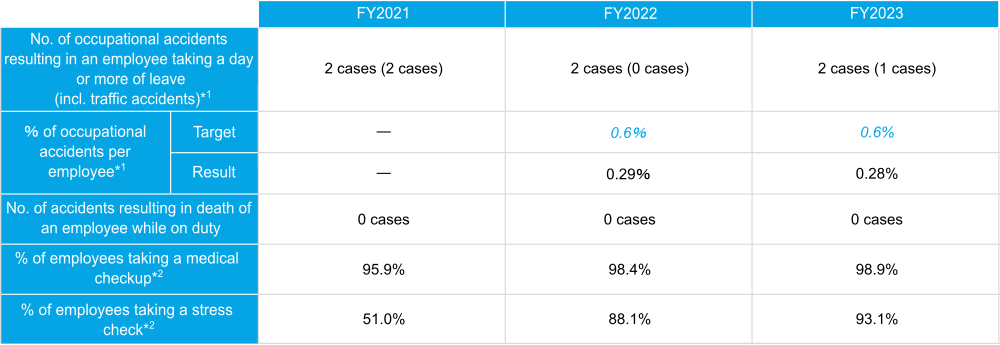
*1 Accidents that have occurred during commute are excluded.
*2 The data reflects all employees (including contract and part-time employees).
In the fiscal year ended March 31, 2025, partner construction companies reported a total of 14 occupational accidents resulting in one or more days of absence from work. This total includes minor injuries such as falls from stepladders and cuts and puncture wounds caused by nails and other tools. KATITAS puts up warning signs at renovation sites and also takes other measures to continue safe business activities with partner construction companies.

[Water stress]
We use Aqueduct, an assessment tool of the World Resources Institute (WRI), to identify water stress and water risk. The water-related risks in Japan, where we operate, are identified as "Low-Medium" and we recognize that the water stress is relatively low in this region.
[Replacement of water facilities (bath, toilet, sink)]
In the majority of the pre-owned properties we handle, we replace the water facilities (bath, toilet, and sink) during renovation. By replacing the water facilities installed at the time of construction with water-efficient equipment, we are able to reduce the environmental impact and water bill expenses of our customers. In particular, for toilets, which account for 21% (*3) of total household water usage, we actively install toilets that are 50% more water-efficient than conventional products.
*3 Tokyo Metropolitan Government Bureau of Waterworks FY2021 Survey of General Household Water Use by Purpose
The Company has not violated any environmental laws and regulations such as the Waste Management and Public Cleansing Law, the Soil Contamination Countermeasures Act, and the Air Pollution Control Act from FY03/23 to FY03/25 and has not incurred any associated fines or penalties.
The Company renovates and sells existing homes to redistribute pre-owned homes. Accordingly, the Company does not develop new sites. Since our business model does not involve the development of new residential areas, there is no need to build new lifelines, which we believe helps in creating compact cities in regional areas.
KATITAS contributes to the achievement of the Sustainable Development Goals (SDGs) through its business of remodeling local empty houses.

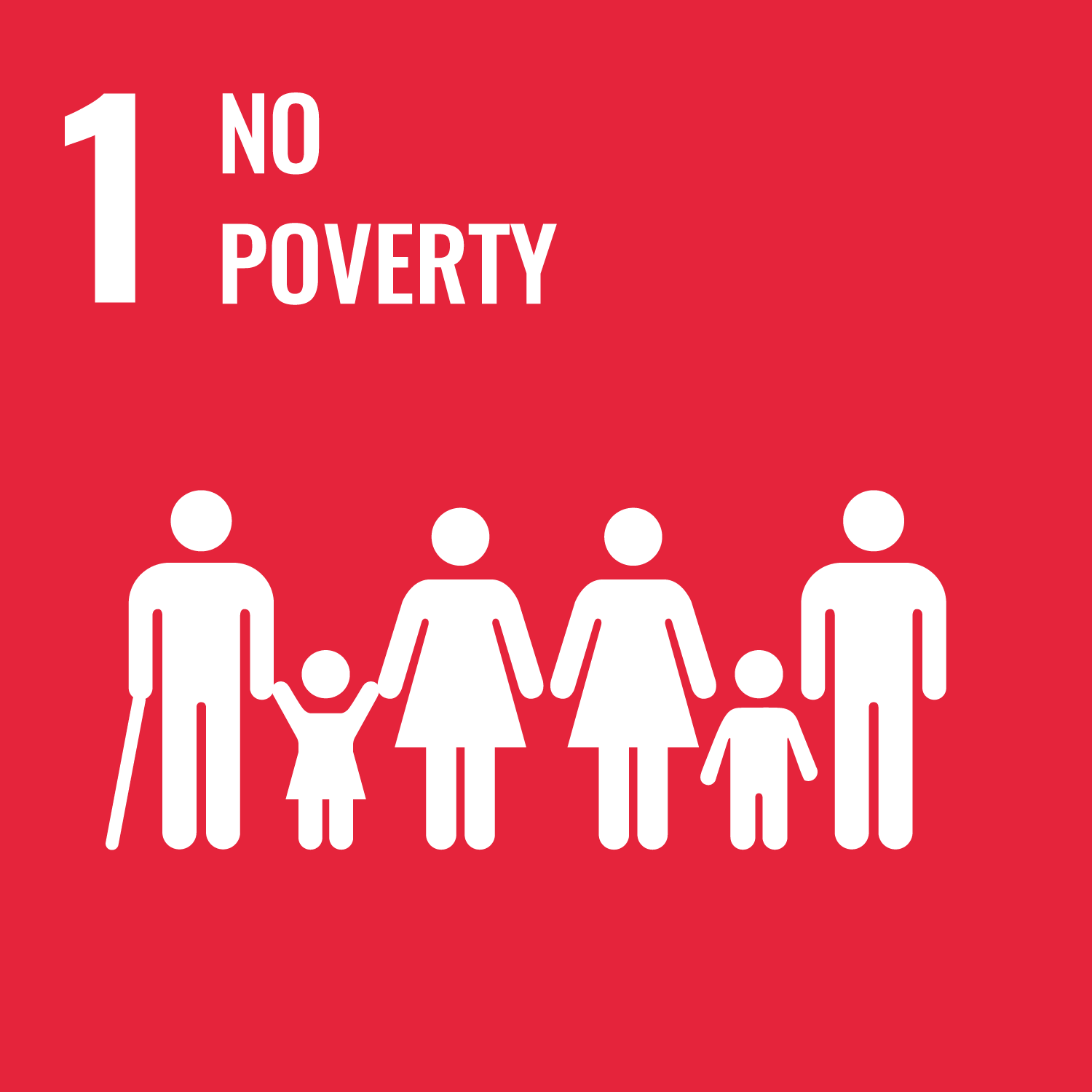


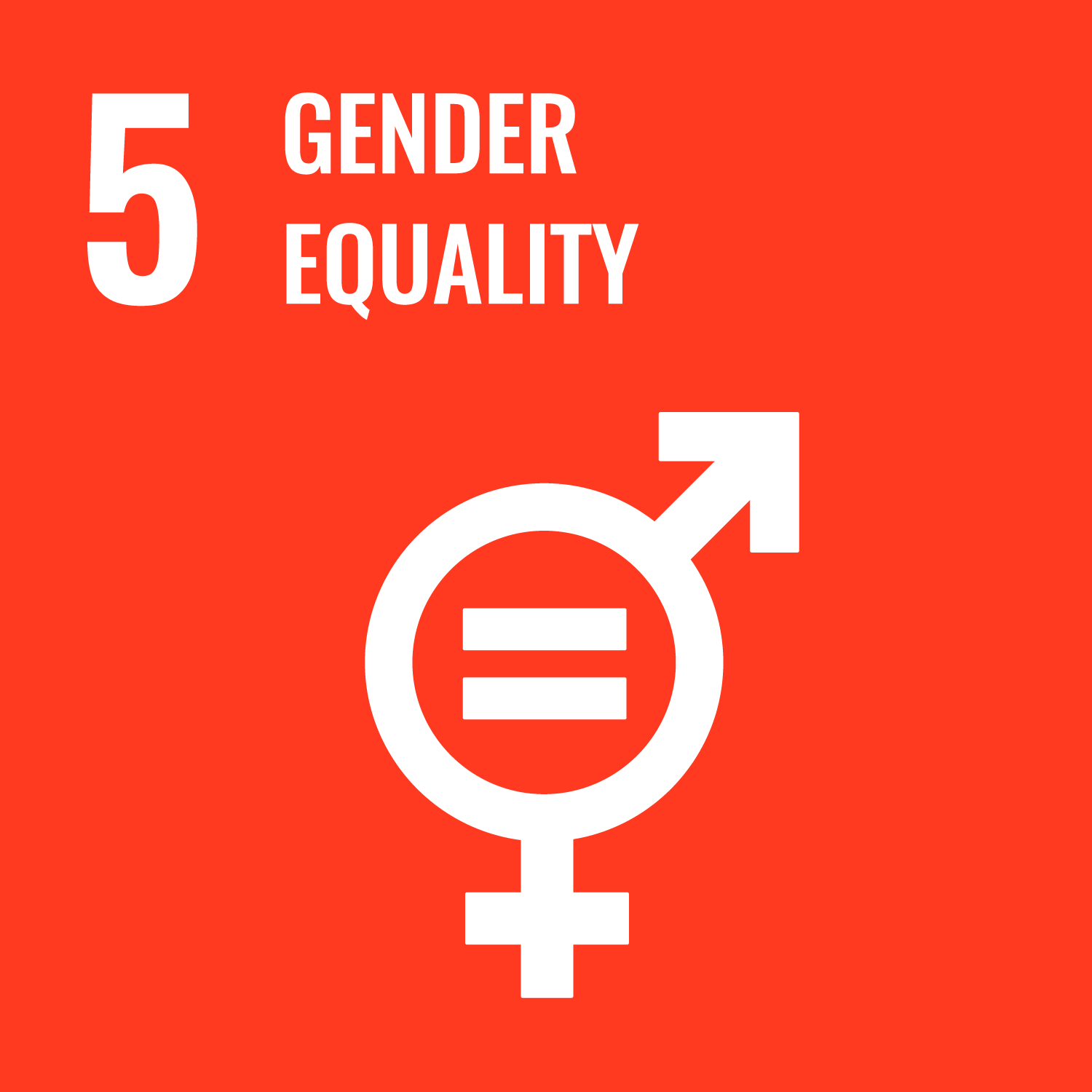
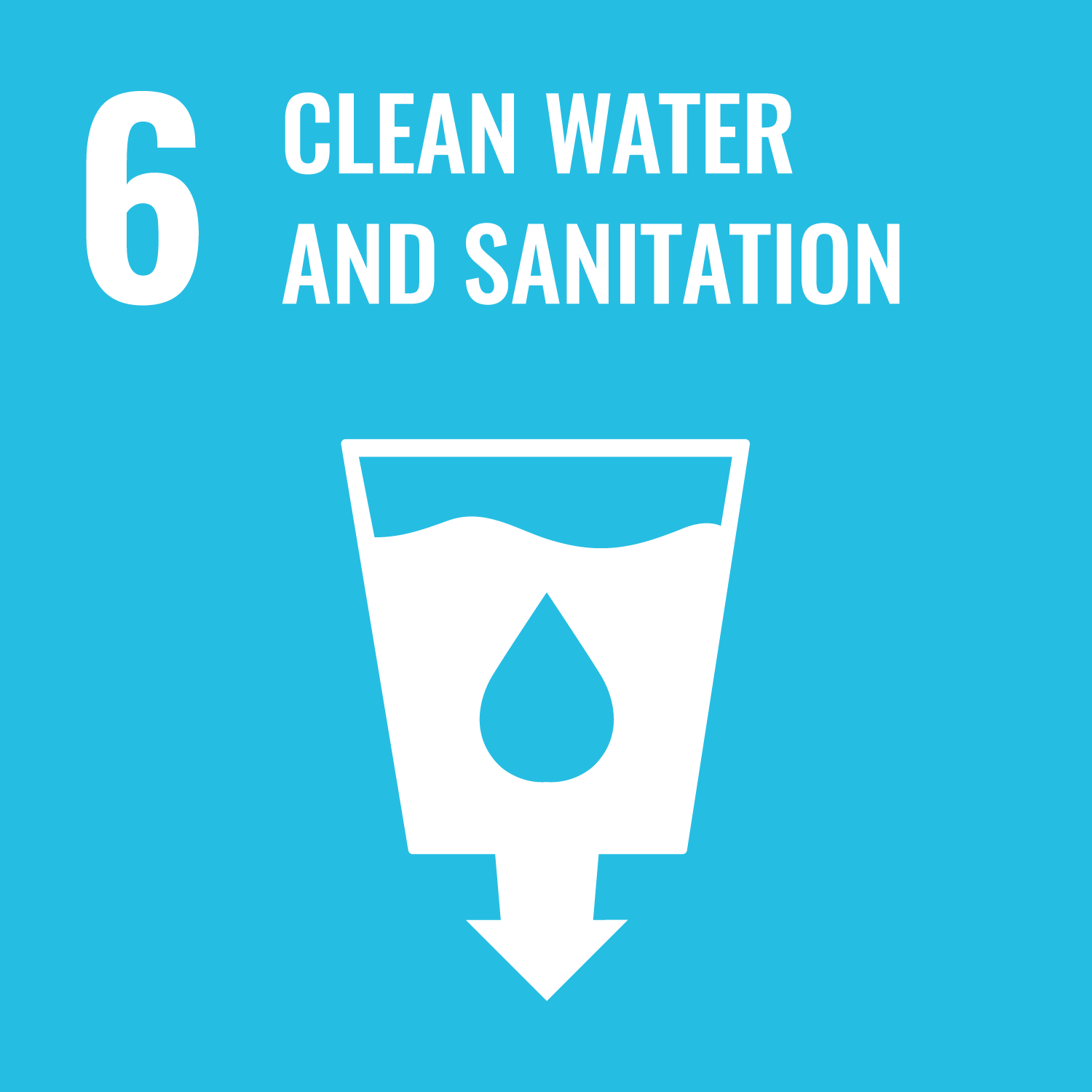
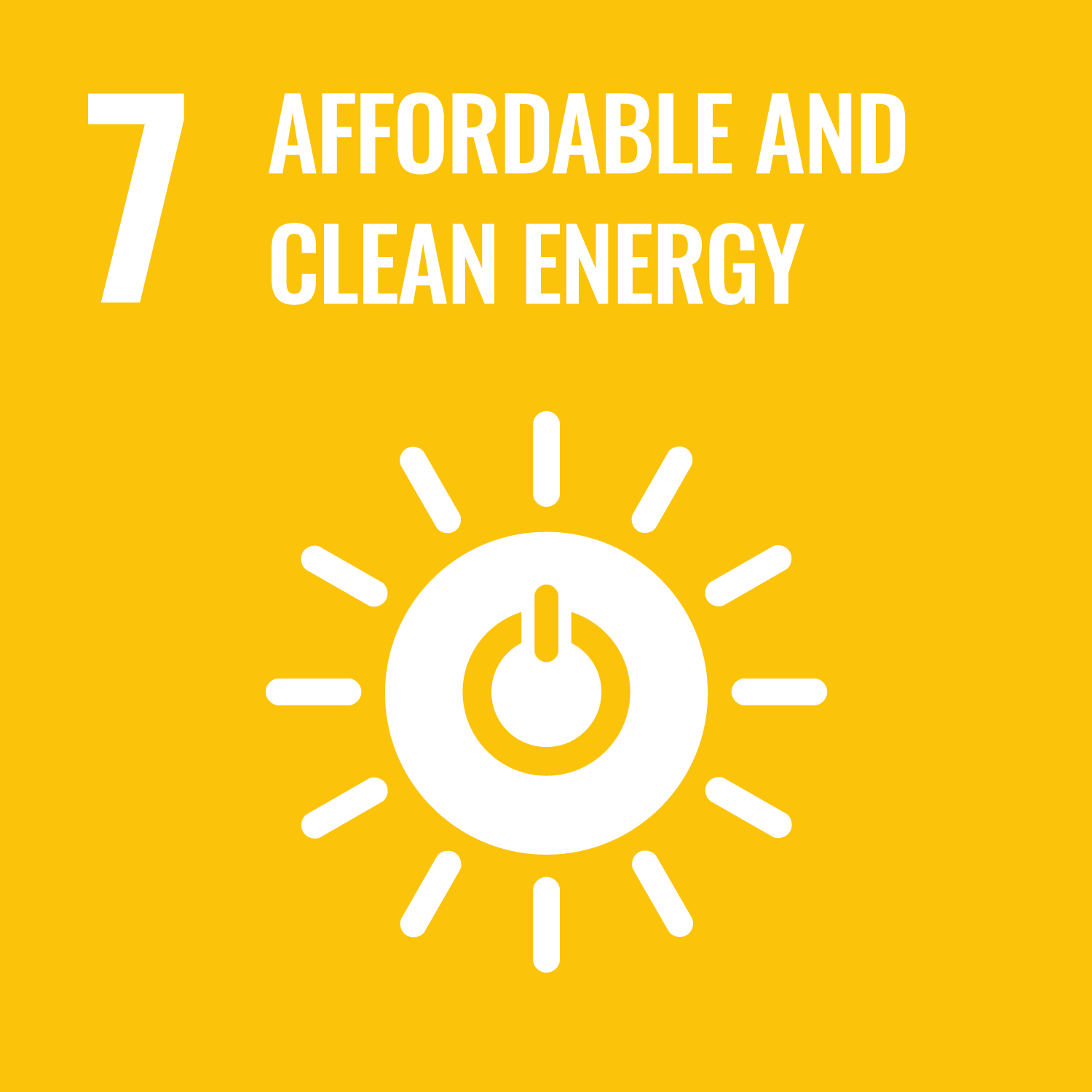
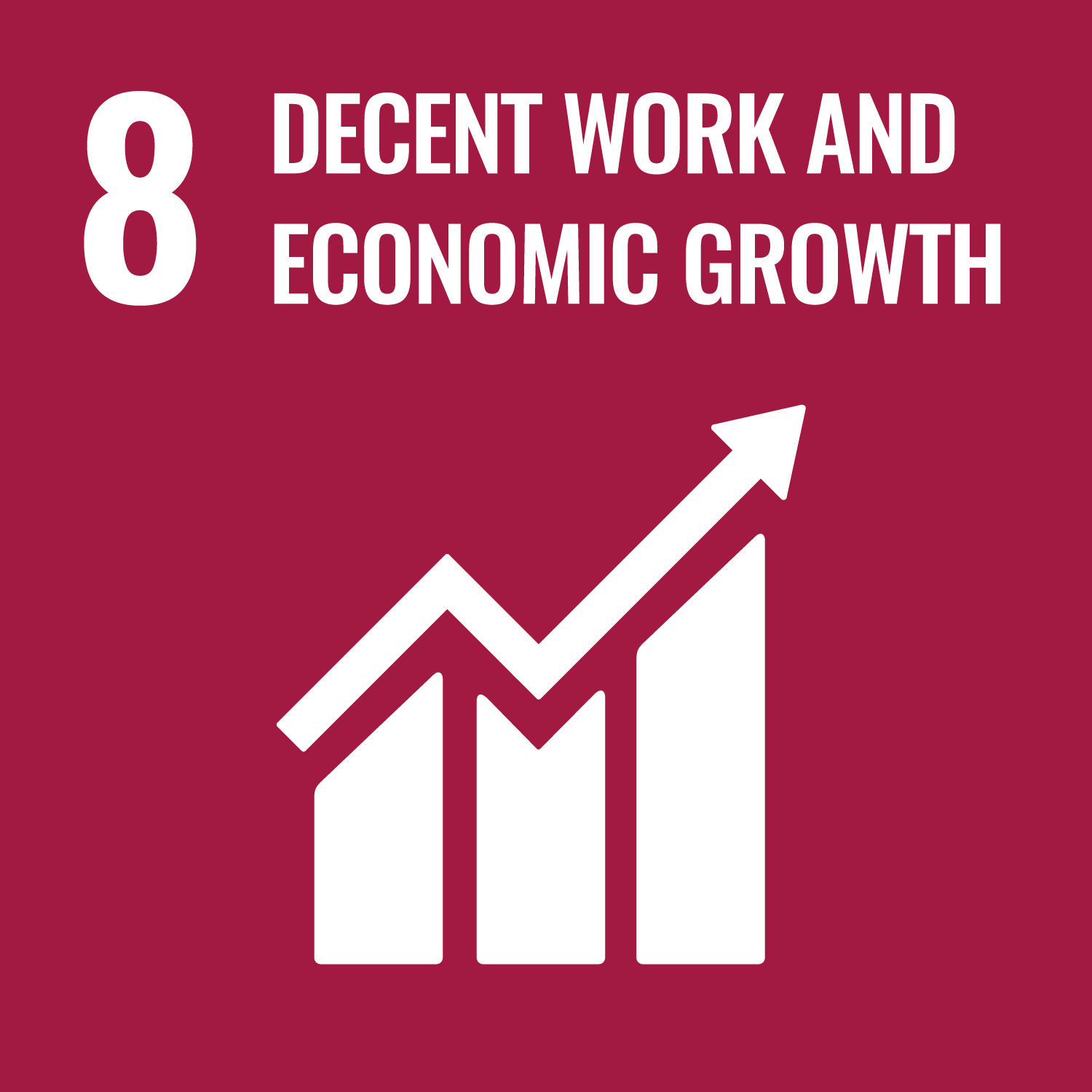
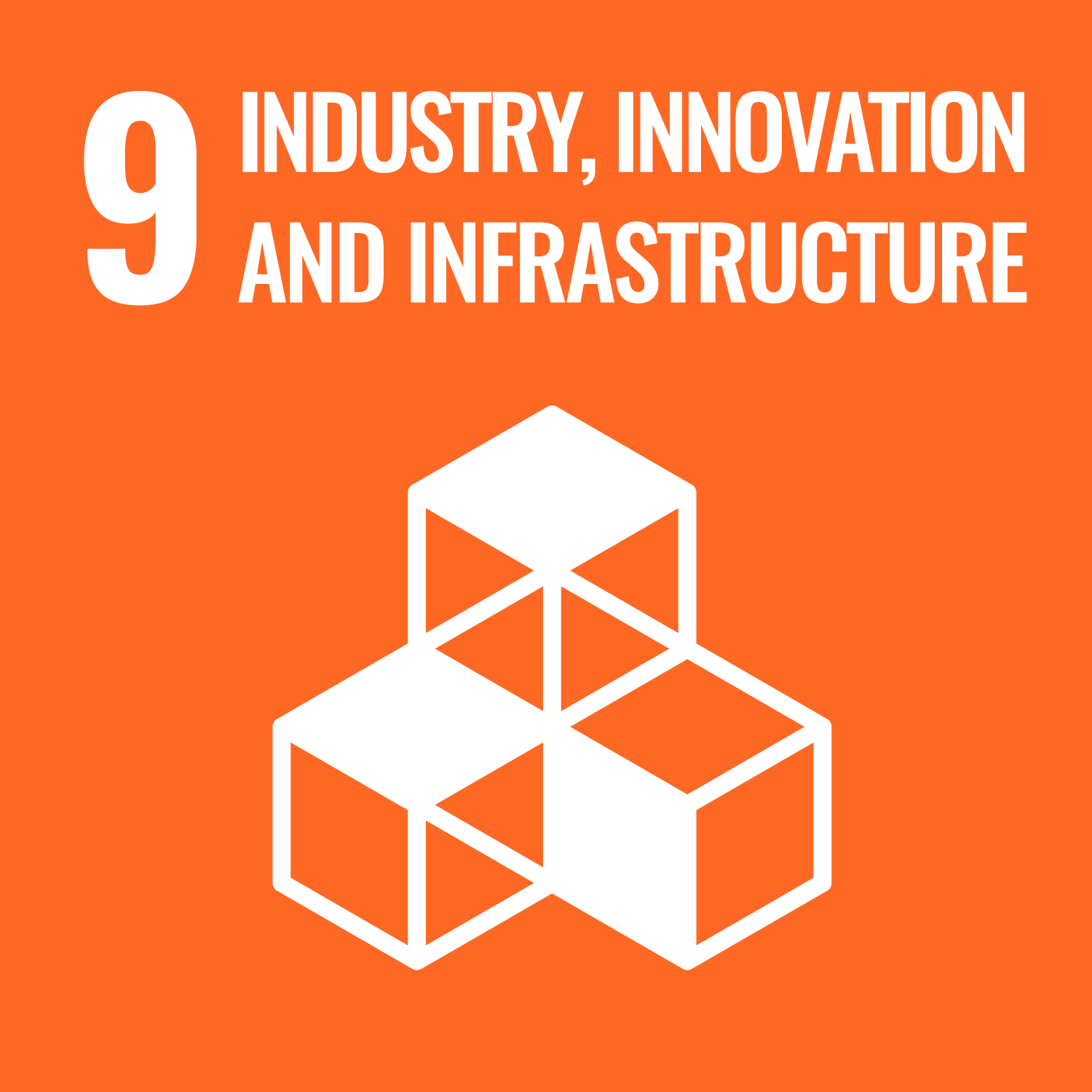
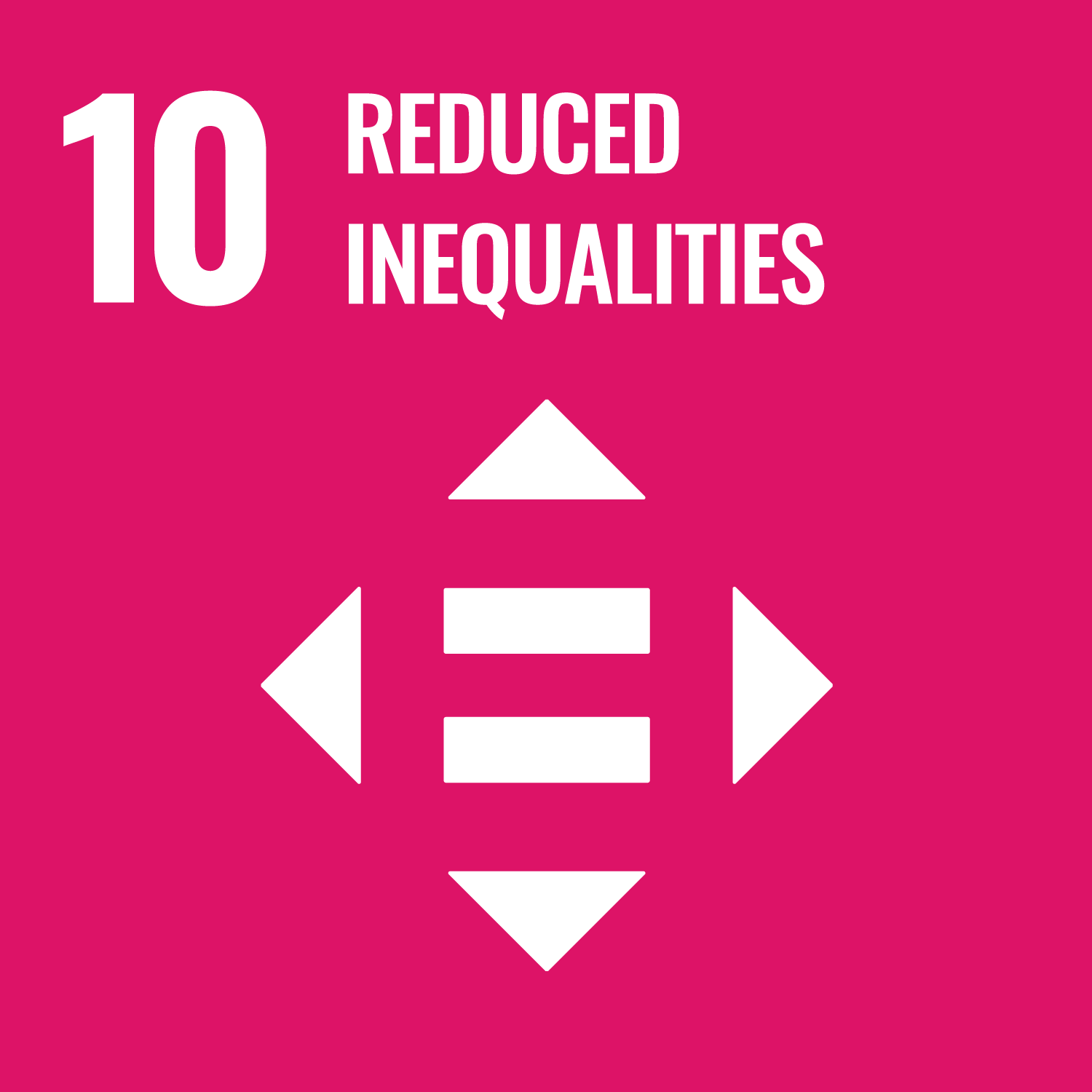
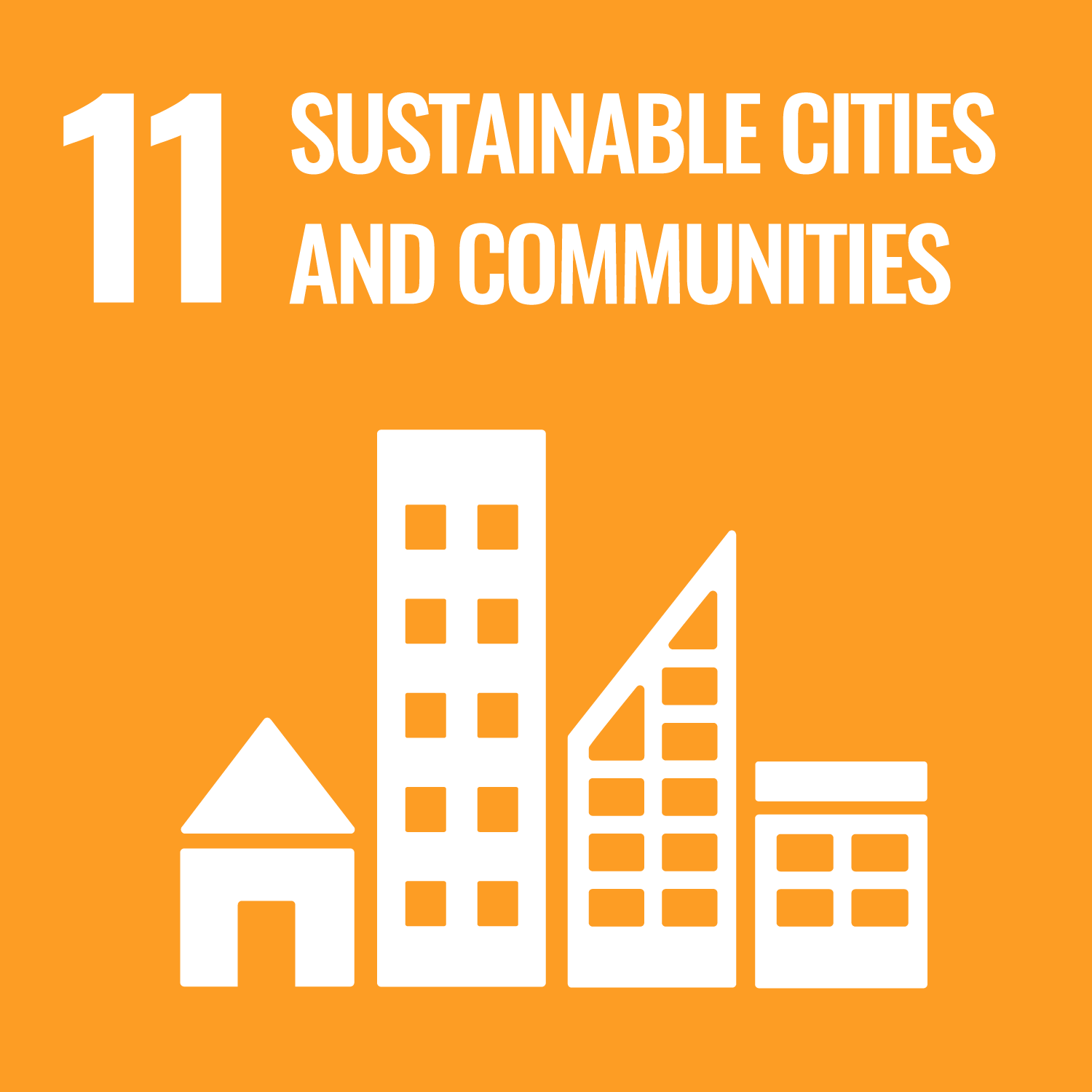
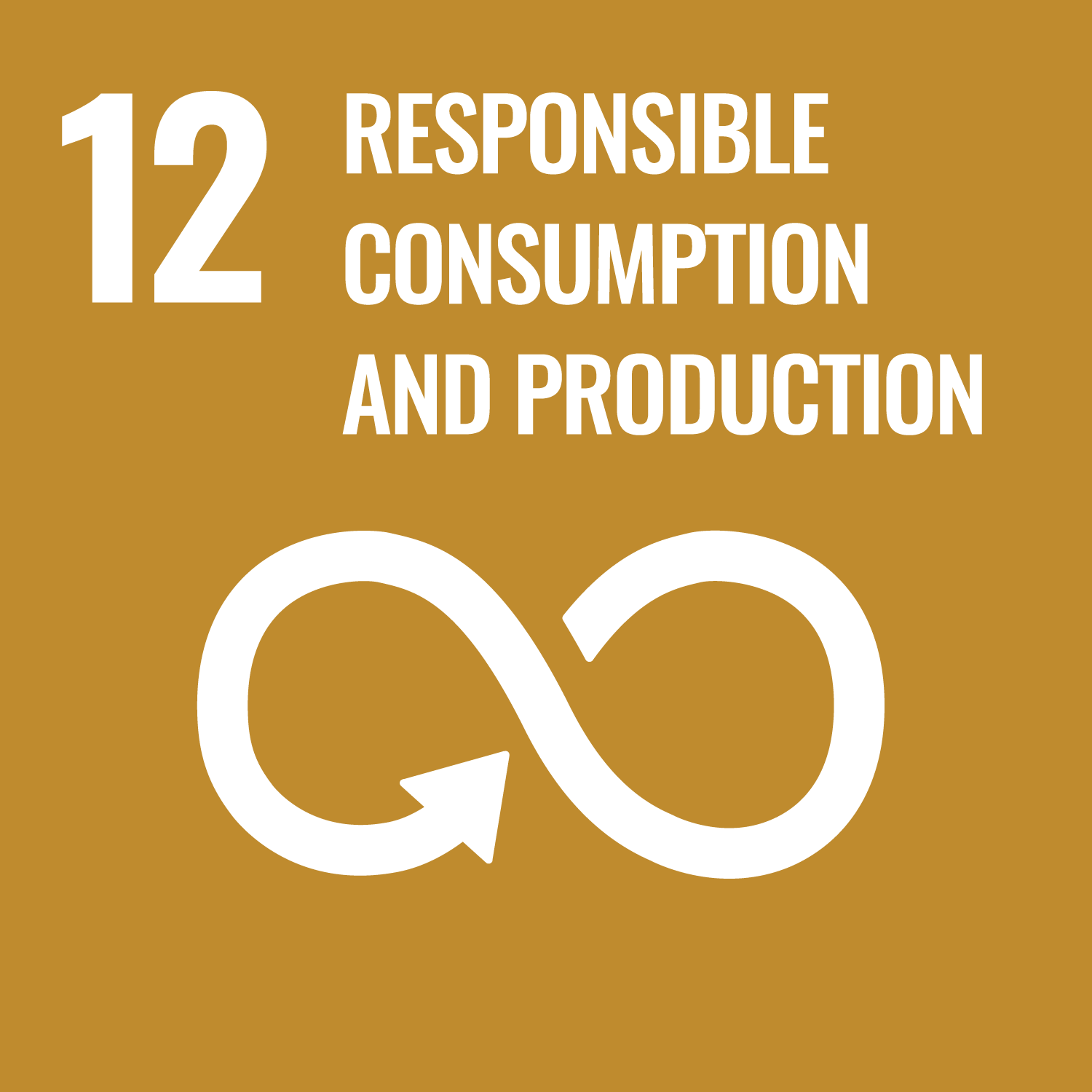

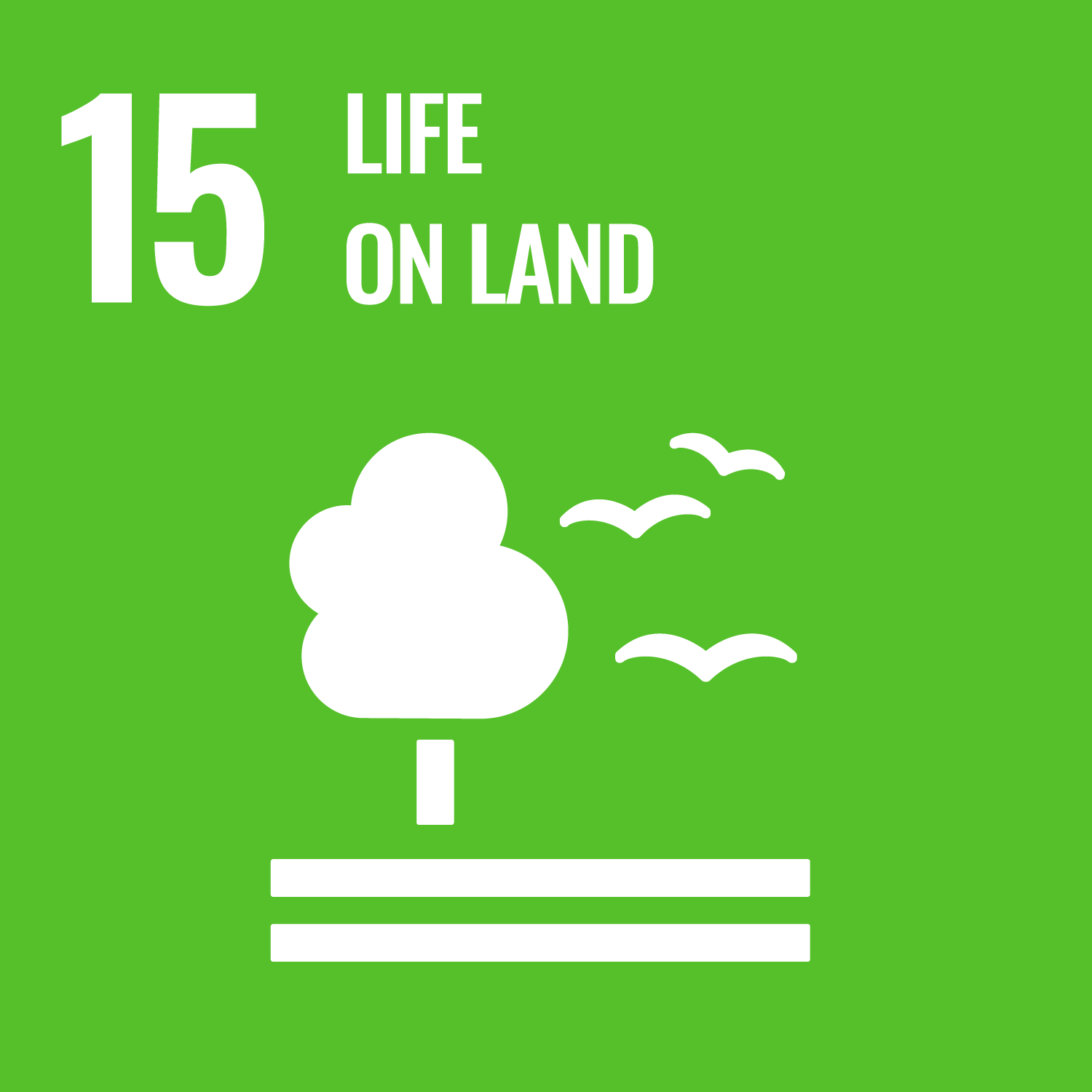
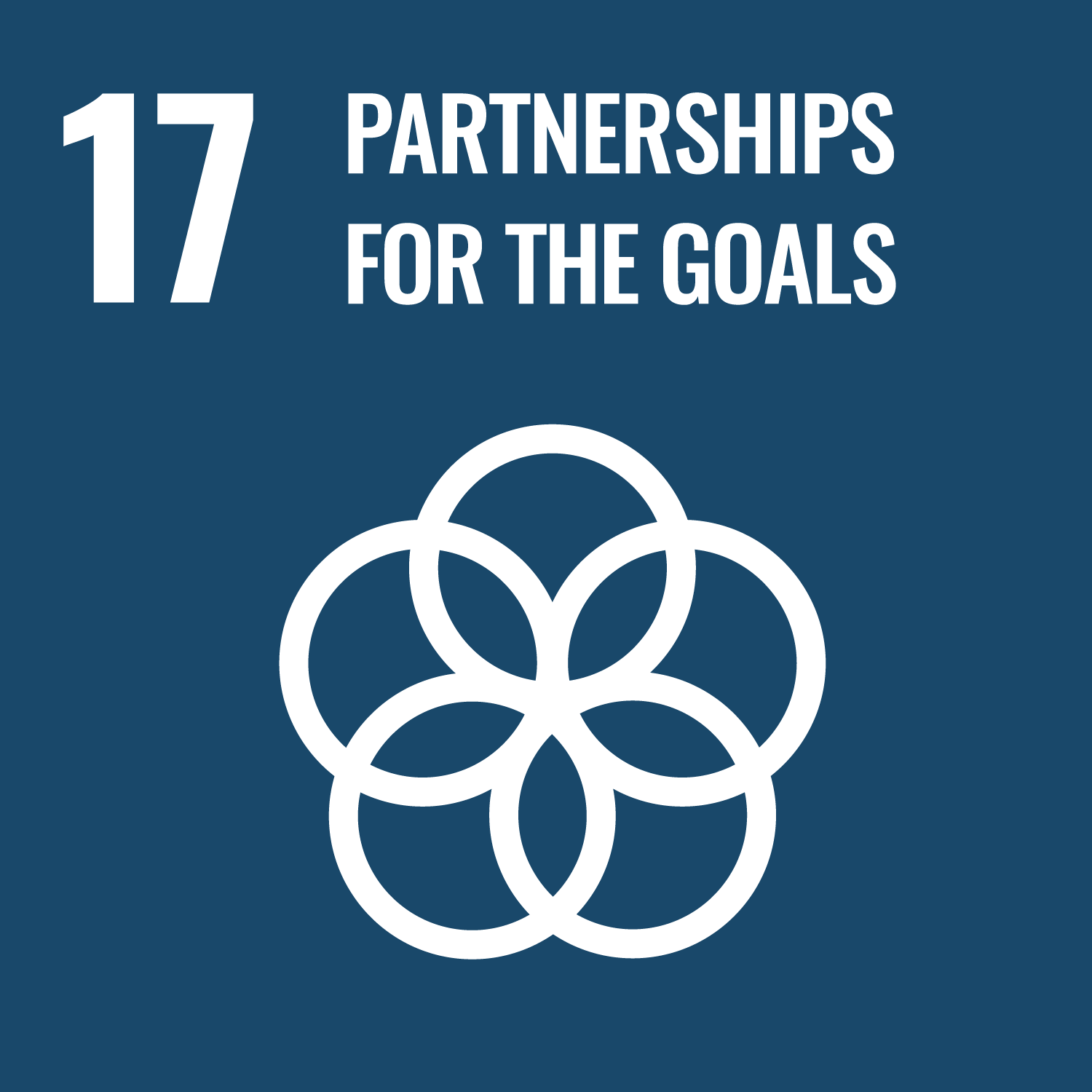
| SDGs relevant to our commitment | Description of our contribution |
|---|---|
| 1.No Poverty | KATITAS offers houses at an average selling price of 14 million yen. In terms of monthly payments, they are priced between 40,000 and 50,000 yen. We offer safe, clean and practical houses and contribute to the achievement of the SDGs. |
| 3.Good Health and Well-being |
|
| 10.Reduced Inequality |
|
| 11.Sustainable Cities and Communities |
|
| 6.Clean Water and Sanitation |
When remodeling homes, KATITAS focuses on houses that have become empty due to succession issues. By remodeling old houses that are still excellent dwellings, we propose new lifestyles that depart from the conventional practice of simply demolishing buildings and building new ones. In this way, we contribute to the achievement of the SDGs. |
| 7.Affordable and Clean Energy |
|
| 12.Responsible Consumption and Production |
|
| 13.Climate Action | |
| 15.Life on Land | |
| 4.Quality Education | KATITAS mainly recruits new graduates born and raised in or near the town where its office operates. We provide students that are motivated to contribute to their hometown with the joy of achieving this through the resolution of the empty house issue. This also helps to achieve the SDGs. By partnering other remodeling companies to stimulate the reuse of empty houses in pursuit of a solution to the empty house issue, KATITAS contributes to the achievement of the SDGs. |
| 8.Decent Work and Economic Growth |
|
| 9.Industry,Innovation and Infrastructure |
|
| 17.Partnerships for the Goals | |
| 5.Gender Equality | At KATITAS, many female staff members play leading roles as they are especially good at reflecting, in the remodeling plans, their consideration for how a homemaker moves in the home and in communicating in a way that is more empathic with sellers and buyers. These advantages help them deliver excellent performances. KATITAS will continue to contribute to the achievement of the SDGs by ensuring gender equality in our workplaces. |